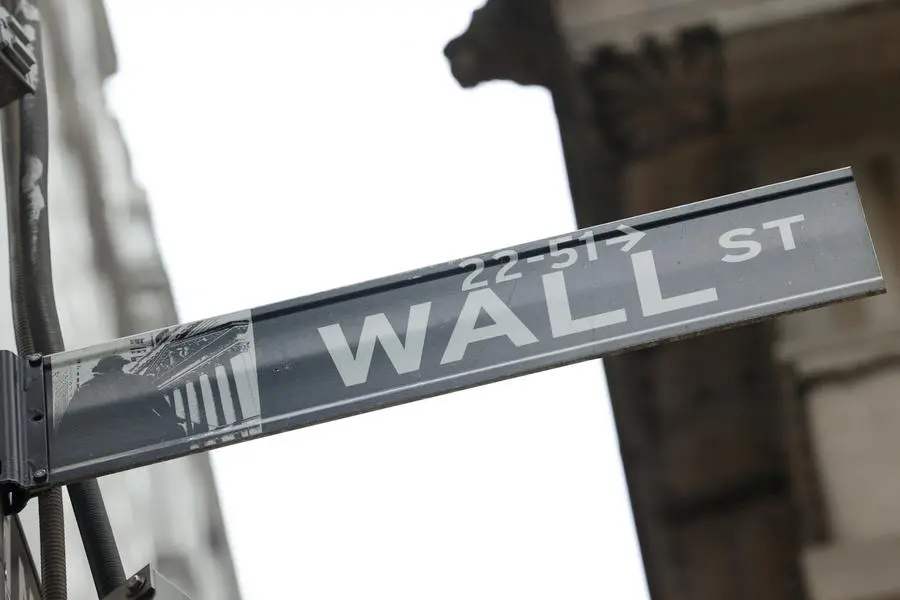PHOTO
Wall Street's major averages suffered their deepest declines so far this month as a downbeat UPS forecast exacerbated investor concerns about a slowing U.S. economy on Tuesday while plunging deposits at regional First Republic Bank added to jitters about the bank sector's health.
Shares in United Parcel Service Inc fell 10%, its biggest daily loss since July 2006, after the courier company forecast full-year revenue at the lower end of its prior target.
This helped push the Dow Jones Transport Average index down 3.6%, for its biggest one-day drop since September.
Also worrying was Tuesday's data showing U.S. consumer confidence fell to a nine-month low in April.
"Investors have been trying valiantly to hold it together in the midst of a big earnings and economic data week and a big Federal Reserve week next week," said Carol Schleif, chief investment officer for BMO Family Office based in Chicago.
Traders largely expect the central bank to hike rates by 25 basis points on Wednesday after its Federal Open Market Committee meeting.
Microsoft Corp shares rebounded after closing down 2.2% in the regular session and was the biggest drag on the S&P 500 ahead of its quarterly report. It reversed course to rise 4.6% in late trading after its revenue beat analysts' expectations.
Similarly, shares in Google's parent Alphabet Inc rose 4% after the bell when its first-quarter revenue surpassed expectations on an advertising uptick and steady cloud services demand. It had closed down 2%.
The Dow Jones Industrial Average fell 344.57 points, or 1.02%, to 33,530.83; and the S&P 500 lost 65.41 points, or 1.58%, at 4,071.63, with both marking their biggest one-day percentage losses since March 22.
The Nasdaq Composite dropped 238.05 points, or 1.98%, to 11,799.16 in its biggest one-day percentage decline since March 9.
The KBW Regional Banking index dropped 3.9% as First Republic shares fell 49%, hitting a record low.
The beleaguered lender reported a more than $100 billion flight in deposits in the first quarter following the biggest banking crisis since 2008 last month.
"People are trying to figure out the health of the regional banks in general. Is there a canary in the coal mine? It's really important for mid-size businesses in the country that the regional banks stay healthy," said BMO's Schleif.
Also on investors minds was an apparent lawmaker stand-off in Washington over raising the U.S. debt ceiling.
"Anytime you hear about a potential default that would trigger a risk-off environment. If we go to the brink and even beyond that wouldn't bode well for risk assets or consumer confidence," said Brian Price, head of investment management for Commonwealth Financial Network in Boston.
Shares in medical technology firm Danaher Corp fell 8.8% after it cut its annual sales growth forecast.
General Motors Co shares fell 4% after it cautioned that 2022 price gains will not last as the year goes on, even as it lifted full-year profit and cash flow forecasts.
PepsiCo Inc shares rose 2.2% after it raised its annual revenue and profit forecasts.
Declining issues outnumbered advancers on the NYSE by a 4.57-to-1 ratio; on Nasdaq, a 3.50-to-1 ratio favored decliners.
The S&P 500 posted 22 new 52-week highs and seven new lows; the Nasdaq Composite recorded 35 new highs and 378 new lows.
On U.S. exchanges 10.78 billion shares traded compared with the 10.32 billion average for the last 20 sessions.
Here is a graphic of earnings estimates and reports so far:
(Reporting by Sinéad Carew in New York, Sruthi Shankar and Ankika Biswas in Bengaluru Editing by Vinay Dwivedi and Richard Chang)




















